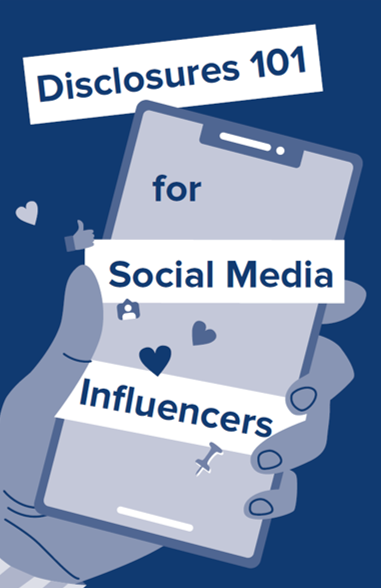Chances are you know an influencer – a person who works with a brand to recommend or endorse a product in social media. Maybe you work at a company that uses influencers or perhaps that describes you, a friend, or a family member. Then you should read a new FTC brochure: Disclosures 101 for Social Media Influencers.
 Influencers have an obligation to stay on the right side of the law. If you endorse a product or service through social media, your message should make it obvious when you have a relationship – a “material connection” – with the brand. That could be a personal, family, or employment relationship or a financial relationship – for example, if a brand pays you or gives you free or discounted products.
Influencers have an obligation to stay on the right side of the law. If you endorse a product or service through social media, your message should make it obvious when you have a relationship – a “material connection” – with the brand. That could be a personal, family, or employment relationship or a financial relationship – for example, if a brand pays you or gives you free or discounted products.
Disclosures 101 for Social Media Influencers answers the questions you may have about when to disclose, how to disclose, and what else you need to know. It also explains that if you don’t have a relationship with a brand and are just telling people about a product you bought and happen to like, you don’t need to say that you don’t have a brand relationship. (The brochure is also available in Spanish.)
The FTC has more resources about influencers, endorsements, and product reviews. And watch this new video that explains some of the legal basics.

